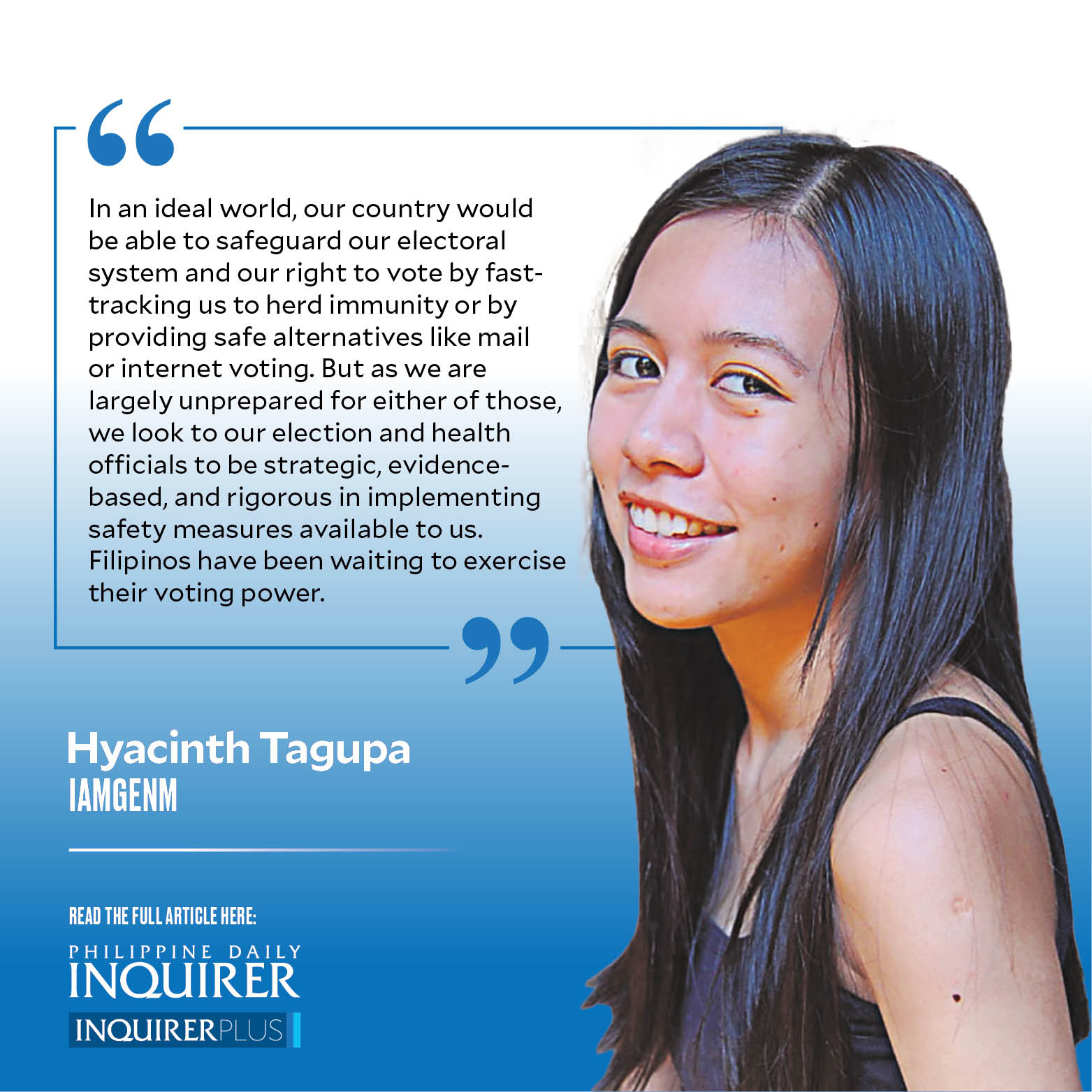Give voters a chance

Only 35 percent of Filipinos have decided to go out and vote in the 2022 elections.
This was a finding of a Pulse Asia survey commissioned by Sen. Juan Miguel Zubiri, which he presented earlier this week. The survey also showed that 46 percent of respondents will not even go to polling precincts if COVID-19 cases are high in their area, while 19 percent are undecided.
These findings are alarming, as extremely low voter turnout could damage the credibility of elections. But who could blame the voters? When COVID-19 remains a serious threat, it is expected of people to prioritize their health above all else. It is unfortunate that the voting public still does not feel secure enough to exercise their democratic right, and even more unfortunate because many are actually eager to get their say on the country’s leadership.
Now, the ball is in the court not only of Comelec but of our health officials to give Filipinos the chance to vote safely next year—and the confidence that that safety is not an illusion. The Inter-Agency Task Force for the Management of Emerging Infectious Diseases has said it will draw up protocols and mechanisms specifically for the election season and election day.
Hopefully, our officials have learned from other countries that have had to manage their own pandemic-era elections. India is an oft-cited example where cases surged following campaign rallies and election gatherings. In the aftermath, electoral analyst Sanjay Kumar emphasized that politicians who violate safety protocols should be held accountable.
“I think the Election Commission [of India] is a powerful body, but could not make sure that protocol is being followed, and did not do enough to penalize the leaders of the political parties, which are seen violating the protocol,” he said. “I think that’s the lesson the Philippines can learn from India.”
Other nations demonstrated that in-person voting can be made safer with smart and well-implemented precautions. South Korea became a model last year when it had its highest voter turnout in nearly three decades, but a month later had no domestic COVID-19 cases directly linked to the elections.
The country set up its defenses well ahead of elections. Apart from comprehensive testing and contact tracing, it sent out safety instructions to voters in advance via text. On voting day, polling stations were strict on temperature screening, physical distancing, and wearing of masks and gloves.
On top of these, South Korea encouraged eligible voters to cast their ballots in advance during a two-day early voting period to reduce crowds on election day. As many as 26.7 percent of their voters opted for early voting. Similarly, the advanced ballot period in New Zealand saw an increase in early voters. And in Singapore, scheduled “time bands” or time slots allowed polling stations to regulate the number of physical attendees, thus thinning out crowds.
During the election season, the Philippines must also be ready to combat misinformation and disinformation, both of which are expected to drive up as campaigns go online. (Interior Secretary Eduardo Año said mass gatherings will not be allowed and candidates can choose to campaign online.) Voter education, as well as public health communication, should have a new focus on weeding out internet-driven myths.
Finally, the vaccination drive has to ramp up to protect the electorate. The health department has been reporting optimistic vax numbers regularly, but on the whole, only 6 million-plus Filipinos have been vaccinated so far (as of July 25). Not an optimistic rate against the 62 million estimated voting population and the 109.6 million total population. Two major hindrances that need to be overcome are vaccine hesitancy and the delayed and slow rollout of vaccines.
In an ideal world, our country would be able to safeguard our electoral system and our right to vote by fast-tracking us to herd immunity or by providing safe alternatives like mail or internet voting. But as we are largely unprepared for either of those, we look to our election and health officials to be strategic, evidence-based, and rigorous in implementing safety measures available to us.
Filipinos have been waiting to exercise their voting power. They are entitled to a safe and secure opportunity to do so.
—————-
hyacinthjt@gmail.com




















